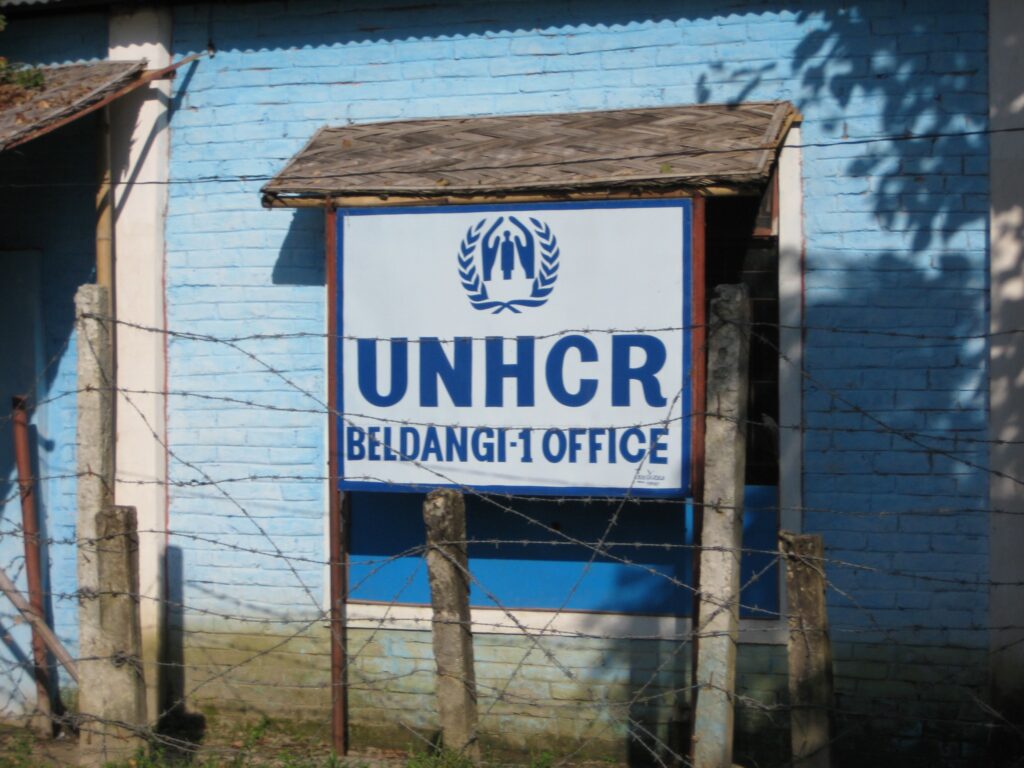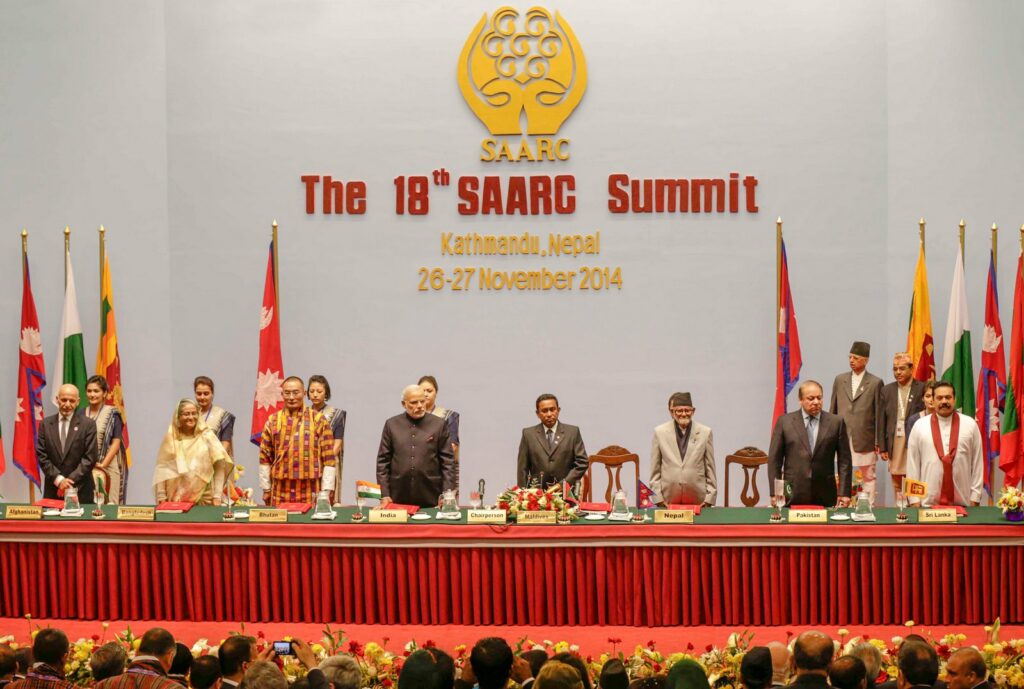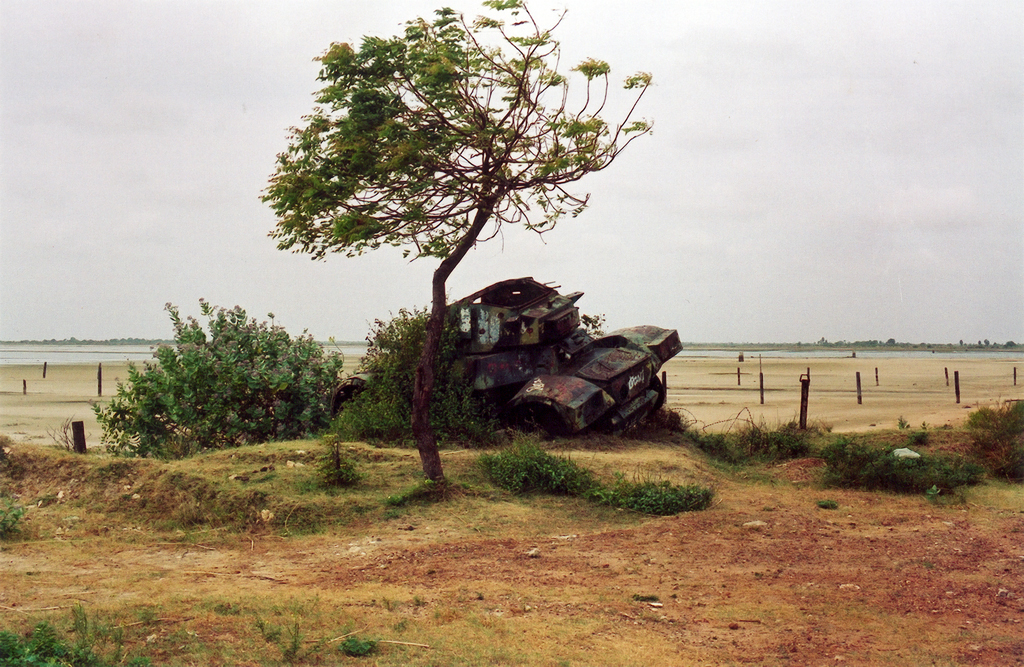
Photo Credit: United Nations, licensed under Creative Commons.
‘The personal is political.’
The above sentence, coined by Carol Hanisch, encapsulates a simple yet pervasive truth about women and their struggles. Women’s lives in the public domain have for a long time been affected directly by gendered power hierarchies and beliefs. Their participation and inclusion in the public domain are determined by the norms and beliefs laid out in the society. However, this politics of domination and subjugation do not exist only in the public domain but also affect the personal lives of people. Personal spaces and family lives are governed by gendered notions that put men in a higher pedestal than women. The personal and political are intrinsically linked, for one, the values imbibed in the personal also influence the political behaviour of women.
South Asian women, have been historically marginalised and excluded from active participation in the political sphere. In recent times, multiple developmental programs have attempted to decrease the regional gender gap in education, employment and political participation by focusing on women centric development, however, the Global Gender Gap Report 2020, highlights that South Asia has the second largest gender gap among the eight other regions of the world.
The gender gap, visible in the education, social and employment sector, is also reflected in the foreign policy and diplomatic decisions of the countries in the region. Female representation remains scarce in important positions in the international arena. Diplomacy as such is a gender-neutral term that does not differentiate between male and female participants, however, the hierarchies established in these societies makes it a male-dominant field. Without proper representation of female voices remain unheard and neglected in internal and international spaces. Female political agency in most South Asian countries is scarce. Female parliamentarians make up only 13% of parliamentarians in India, 21 % in Bangladesh, and Nepal tops the list with women comprising 33.5 % of the federal parliament. Though these statistics show a considerable improvement from previous years , they are not proportional to the female population living in these countries.
Despite improvement in terms of the political representation of women in various South Asian countries, ground level problems remain which need to be addressed to ensure feminist outlooks are taken into context when making international decisions. Complex patriarchal power structures in these countries limit the participation of women. In Nepal, for example, the 2015 constitution prevents women from providing their child with the right to citizenship. The only parent able to confer Nepalese citizenship is a ‘male’ member of society. This prejudicial notion limits women’s participation in society. Their participation becomes directly linked to a male member of society and they their roles are confined as just daughters and wives This limitation in role also manifests in the political decision-making process in times of war and conflict where a similar binary between the genders is adopted, labelling men as the protectors while women are the objects that are need of protection.
In a similar vein, in India, through protests like that of Shaheen Bagh, political representation and inclusivity has improved , with more women asserting themselves in the public sphere. However, international and diplomatic decision-making persists in excluding women from senior positions. As Khullar highlights, a false hard-soft diplomatic dichotomy has been created where defence, military, power and security are reserved as male domains and diplomatic decision-making surrounding topics of international trafficking, migration, women empowerment and human rights are labelled as soft-domains. An outlook that women rely on emotions and focus on soft-issues is still prevalent in many countries in the region and women ministers are often assigned positions based on the same assumption while diplomatic decision-making remain dominated by male leaders. Therefore, the diplomatic and foreign policy structure that has been monopolised by men does not allow space for feminist voices.
Allowing women more representation not just in internal but also international politics will open up new avenues for countries to make way for a more inclusive society. A feminist foreign policy will ensure that women who are confined to the domestic spheres are also represented in the decision-making process. A feminist foreign policy (FFP) agenda can act as a fresh perspective and opportunity to view war and peace from a different lens. FFP emphasises that gender is not an accidental but an intrinsic part of military, economic and diplomatic relations between nations. It allows countries to develop a holistic outlook towards decision-making in the international security arena by incorporating the voices of women and other marginalised communities.
Women’s issues in many societies are viewed through a cultural lens of culture while issues surrounding men are considered political. These traditional notions bar women from being active participants in the political arena. The responsibility to protect and various international agendas are also used patriarchal tools to advance strategic interests in interventionist wars across the world where men are responsible for the protection of women. In the light of this underrepresentation and exclusion from the mainstream international agenda, the inclusion of women in negotiation tables and their decisions should be taken into consideration. Hearing the voices of people from traditionally underrepresented groups in society will shed light upon the intersectional impact of any decision-making process.
The war-peace dichotomy, a fixture of traditional foreign policy, can be overcome by addressing issues surrounding migration, border policing and increased securitisation through a feminist lens. South Asia has an admirable history in terms of women residing in positions of power with Sri Lanka, India, Pakistan, Bangladesh, Myanmar and Nepal electing female leaders. However, despite such headline progress women in parts of South Asia are still subjected to discriminatory practices and are excluded from social and political participation. Adopting a feminist foreign policy in such a situation will allow countries in South Asia to assert their commitment to gender equality by addressing intersectional issues in both internal and international arena. Commitment towards a feminist foreign policy can also impact the global standing of countries and can help strengthen diplomatic ties.



